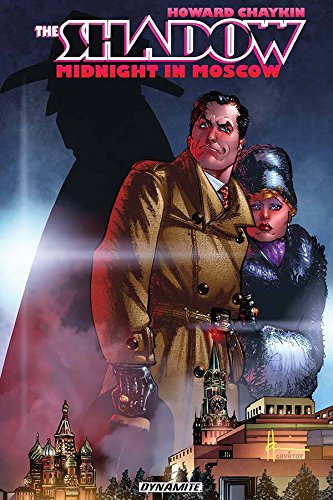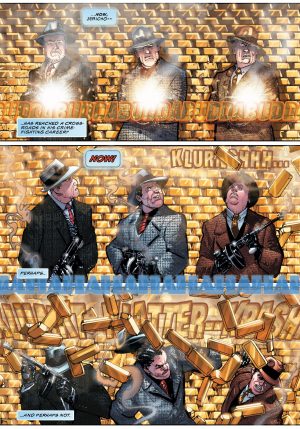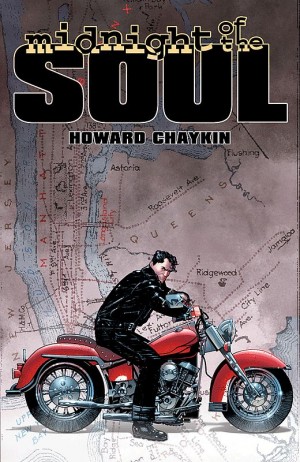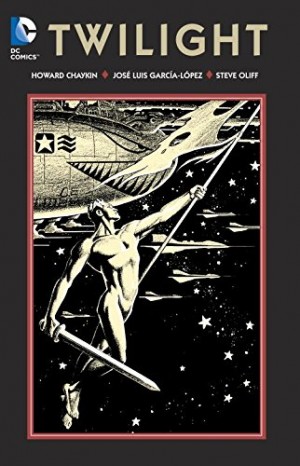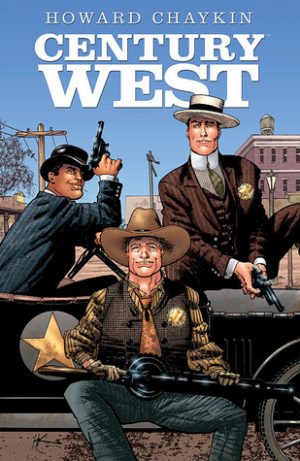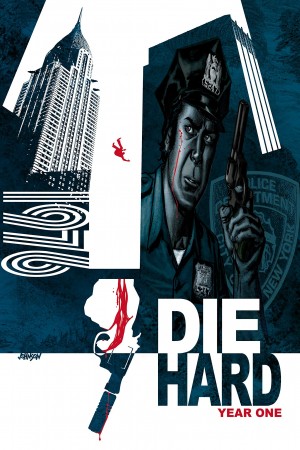Review by Karl Verhoven
Howard Chaykin repurposed the Shadow for use in the then modern era in 1985 as Blood & Judgment, but his heart’s always been in the past, with barely a feature of his that doesn’t reference it somehow. Even that 1980s reworking spent a good time looking back, and in Midnight in Moscow Chaykin revisits a matter he glossed over.
The opening pages set in 1949 are an elegy to an already byegone era, with Chaykin locating New Year’s Eve in New York as the zenith. Tying into this is the Shadow feeling uncharacteristically reflective before coming to the conclusion that “it’s time for the Shadow to hang up his hat”, a statement he can make more literally than most. Of course, given his relentless dedication to obliterating criminals, he’s not one to leave unfinished business.
Finely phrased sardonic commentary on the fading glory of the British Empire, the British people and British food (“nothing but contempt for the act of dining as an act of pleasure”) accompanies the Shadow’s brief retirement. As amusing as this is in places, it’s a very casual lead in to the Shadow actually making his way to Moscow, during which we can ponder whether jazz fan Chaykin really took his title from Kenny Ball’s early 1960s toe tapper, or if it’s just coincidence. We do have a Dixie Teagarden in the cast, after all. The Shadow as a civilian bored by the opulent life is parsed with the continuing plot of a gangster and Soviet spies.
Some of the pages Chaykin’s drawn for Marvel in the 21st century have seemed dashed off, but Midnight in Moscow is something Chaykin has an interest in, so every page drips with grace and elegance as Chaykin lovingly feeds us this bygone period. The glamorous world he creates is a composite fantasy, but well realised, whether in New York, London, Paris or Moscow. As Lamont Cranston or Kent Allard, the Shadow moves in the highest circles, and we’re left in no doubt of it. The occasional slightly odd face is apparent, but small potatoes.
When the plot is finally revealed, it’s clever. Chaykin’s infiltrated technology from superhero comics to the Shadow’s world, but in moderation, so it’s convincing and possible rather than glaringly anomalous. There’s a good use of one prominent historical figure, an endearingly loopy villain, and a fine ending. Perceived wisdom would have it that revisiting past triumphs is always a mistake, but Midnight in Moscow works and works well.
